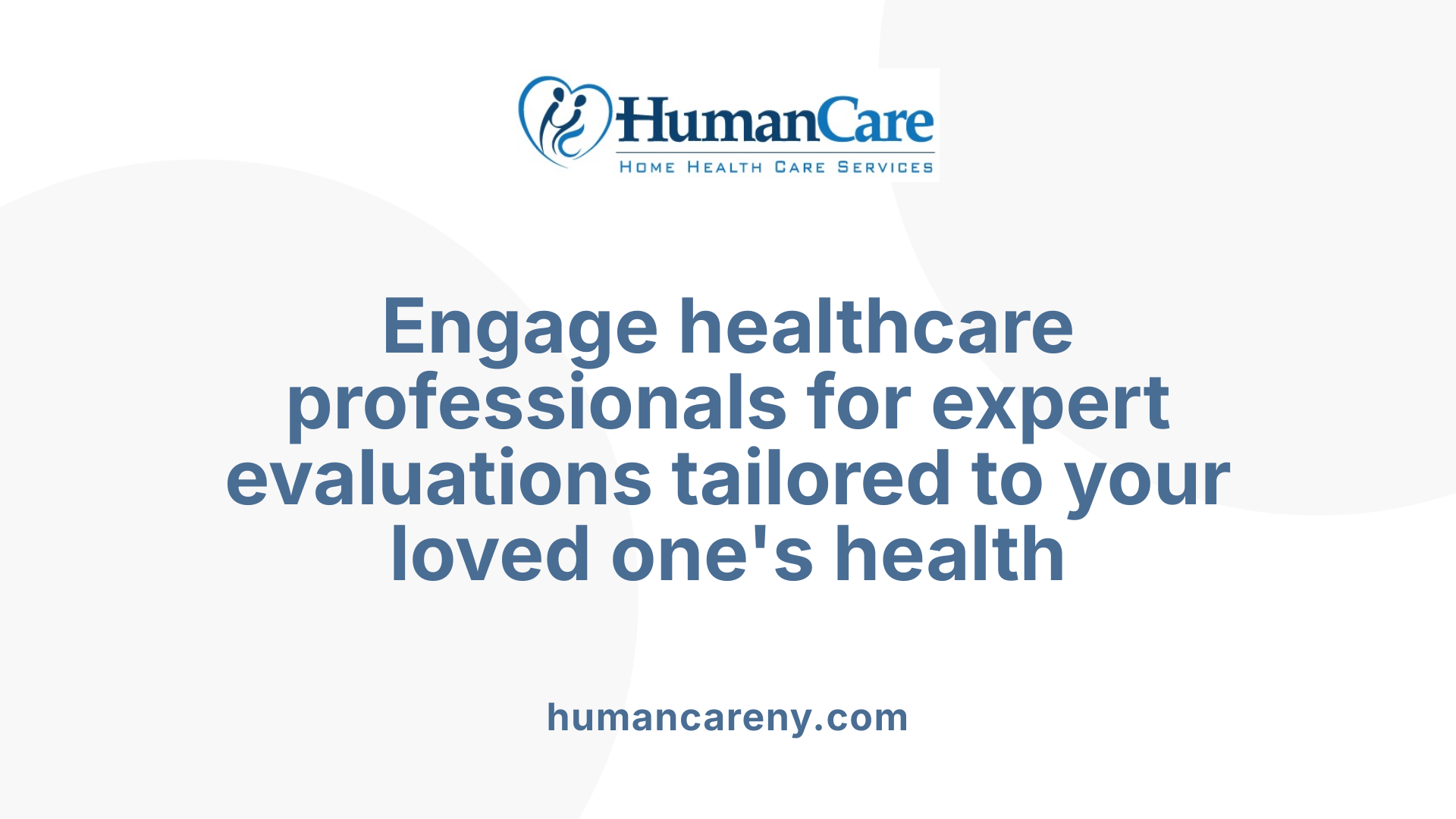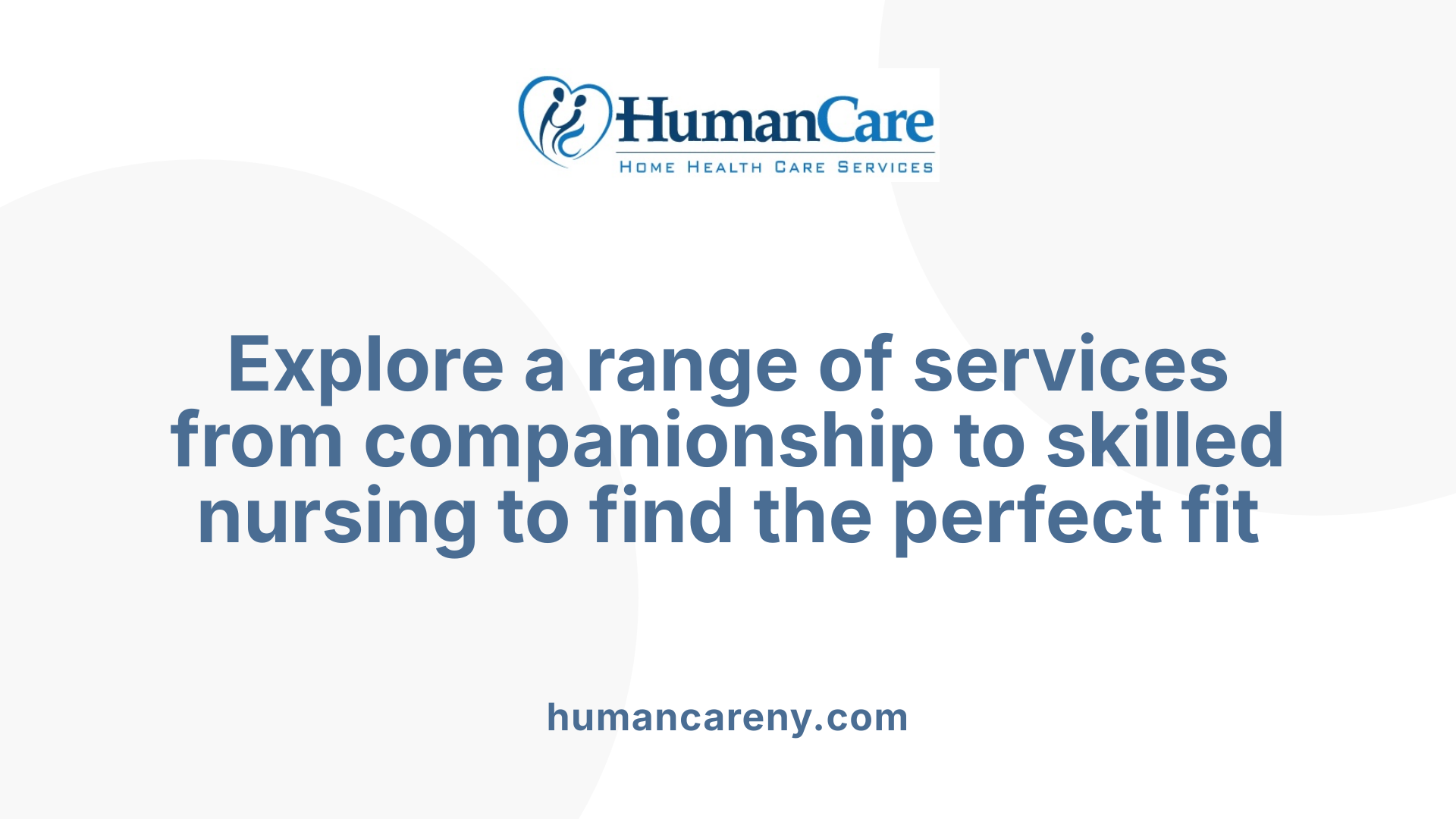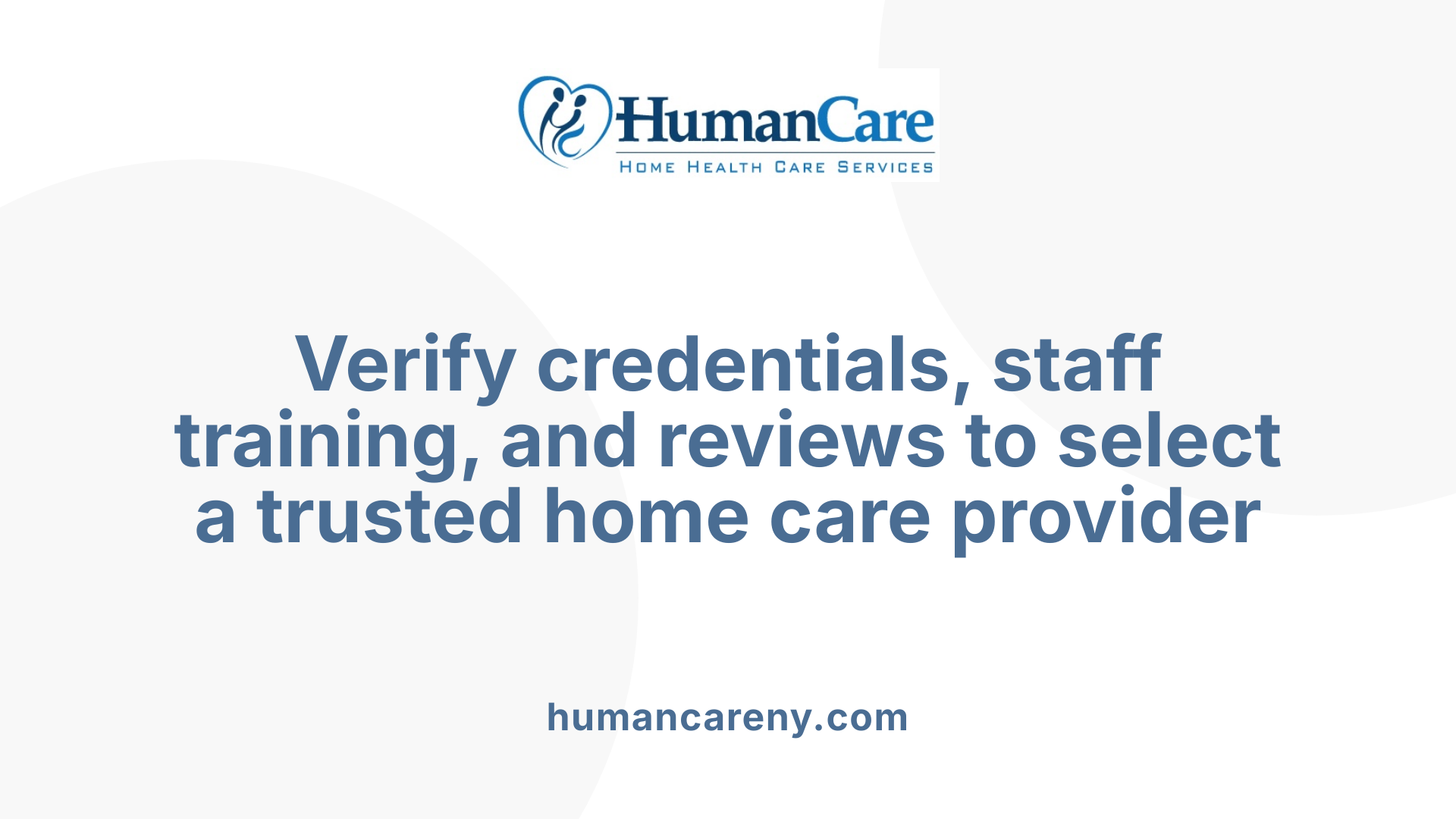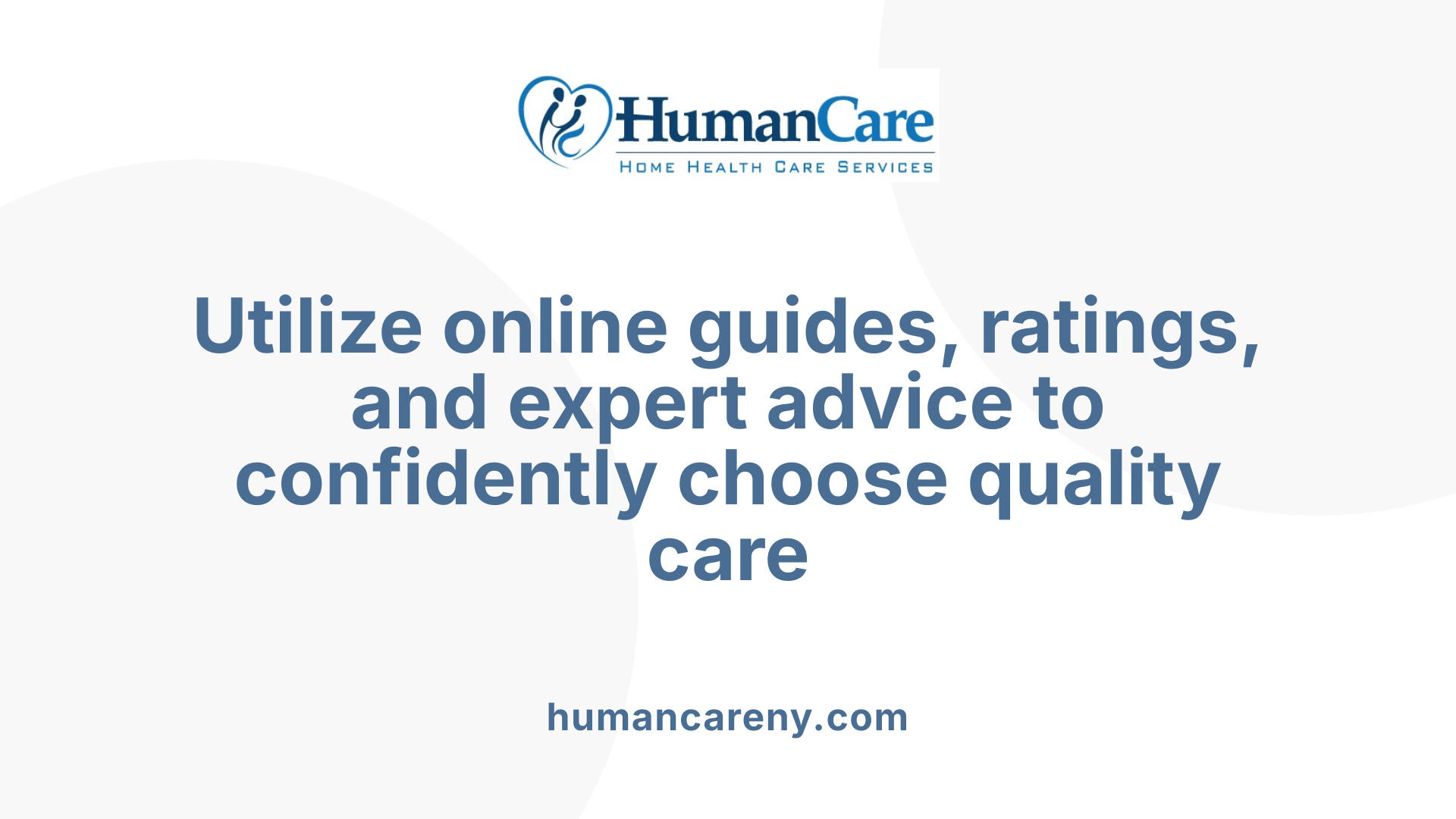Ensuring Quality and Compatibility in Home Care Choices
Choosing the right in-home care provider is a critical decision that impacts your loved one's safety, comfort, and dignity. This process involves assessing needs, researching providers, and asking the right questions to ensure that the care delivered aligns with your expectations and requirements.
Assessing the Needs of Your Loved One

How do I determine the appropriate level of in-home care needed?
Determining the right level of in-home care begins with a thorough assessment of your loved one's needs. This involves understanding their physical, emotional, and cognitive abilities to identify what support they require.
Start by observing their daily routines. Can they successfully bathe, dress, eat, and manage medications on their own? Notice if they experience difficulties or show signs of fatigue, confusion, or safety concerns. For example, trouble with mobility or memory lapses may indicate the need for more hands-on support or specialized care.
Engaging healthcare professionals can provide valuable insights. An initial evaluation by a doctor, geriatric specialist, or a professional assessment agency helps create a clear picture of medical conditions, safety risks, and essential support levels.
Create a detailed list that covers medical needs, safety considerations, and social engagement. Consider whether the individual benefits from companionship, light housekeeping, medication reminders, or full medical care involving skilled nursing.
Care options vary widely, from basic companion services to comprehensive skilled nursing. Matching the care level to the individual's specific circumstances helps preserve their independence while ensuring safety and well-being.
Financial aspects also influence your decision. Review available assistance programs such as Medicare, Medicaid, Veterans Benefits, or long-term care insurance to determine feasible options.
Finally, involve the person needing care in discussions about their preferences and comfort zone. Respecting their wishes and dignity is fundamental to choosing the most suitable and respectful care arrangement.
This comprehensive approach not only ensures that the care level aligns with current needs but also allows flexibility to adapt as those needs evolve over time.
Understanding Your Care Options and Services

What types of home care services are available?
Home care services encompass a variety of support levels tailored to individual needs. The most common types include Companion Care, Personal Care, and Skilled Nursing.
- Companion Care: Focuses on social interaction, maintaining companionship, and aiding with light housekeeping, meal prep, and transportation.
- Personal Care: Assists with activities of daily living (ADLs) such as bathing, dressing, grooming, and mobility support.
- Skilled Nursing: Provided by licensed nurses for medical tasks like medication management, wound care, and health monitoring.
Some agencies also offer specialized services, such as dementia or Alzheimer’s care, post-surgical assistance, and in-home therapies like physical or occupational therapy.
Are there specialized care options for specific health conditions?
Yes, many agencies provide tailored support for conditions like Alzheimer’s disease and other forms of dementia, ensuring safety and engagement. Post-surgical or post-hospitalization care includes wound management, mobility support, and monitoring recovery progress. In-home therapies can be arranged for individuals needing physical, occupational, or speech therapy, often coordinated with healthcare providers.
What about emergency support and availability of services?
Having access to emergency support is crucial. Reputable agencies often provide around-the-clock availability, including overnight care and response to urgent needs. Some agencies might also have backup caregivers on call to ensure continuous support if the primary caregiver is unavailable. It’s essential to clarify these options during your initial discussions with providers.
How do care services adjust as needs change?
Long-term care plans should incorporate regular re-assessments to adapt to evolving needs. Good agencies develop flexible plans that can expand or scale back services, ensure seamless transitions between care levels, and involve family members and healthcare professionals in ongoing planning.
| Service Type | Typical Tasks / Focus | Suitability | Additional Support Options |
|---|---|---|---|
| Companion Care | Conversation, social engagement, light household tasks | Elderly needing social interaction | Transportation, holiday visits |
| Personal Care | Bathing, dressing, mobility assistance | Individuals with mobility or personal care challenges | Meal preparation, medication reminders |
| Skilled Nursing | Wound care, medication management, health monitoring | Complex health needs | Post-hospital recovery, chronic illness management |
| Specialized (Dementia, Post-surgical) | Memory support, post-surgical recovery protocols | Specific health conditions | Consistent oversight, emergency protocols |
| Emergency and 24/7 Support | Overnight monitoring, urgent response | Unpredictable or critical needs | Back-up caregivers, on-call nursing support |
Understanding these options helps determine the appropriate services to meet your loved one’s health and independence goals.
How to choose the right home care services?
Start by evaluating the specific health conditions, daily activity needs, and personal preferences of your loved one. Consider whether transportation, companionship, or skilled medical support is most needed.
Gather recommendations from trusted sources, such as healthcare providers and community agencies. Research online reviews and industry ratings to identify reputable providers with positive testimonials.
Set a realistic budget and inquire about costs, insurance coverage, and payment plans upfront to avoid surprises. Schedule interviews to meet potential caregivers or representatives, asking about their training, background checks, and emergency procedures.
It’s important to involve your loved one in the decision-making process to ensure they are comfortable with the caregiver and the services offered.
Inclusivity of services and continuous evaluation
A comprehensive home care plan should include consideration of all relevant needs, from daily tasks to medical interventions. Regularly reviewing and updating care plans ensures the support adapts seamlessly to changing conditions.
Having a detailed understanding of available services helps you make informed choices, so your loved one receives compassionate, competent, and appropriate care in the comfort of their home.
Working with Reputable Agencies and Understanding Their Standards

How can I evaluate and assess the suitability of in-home care providers?
Evaluating the quality and suitability of in-home care agencies involves a multi-faceted approach. Start by verifying the agency's credentials and professional designations. Reputable agencies often have certifications from recognized organizations such as Home Care Pulse, which evaluates care quality and staff satisfaction. These certifications indicate that the agency adheres to rigorous standards.
Next, review the agency's caregiver screening and background check procedures. Ask if they conduct comprehensive background checks, drug screenings, and criminal history reviews for all staff. Confirm whether caregivers are licensed, certified, and trained according to state and industry standards.
Training and certification are critical factors. Ensure that caregivers are certified in CPR and First Aid, and inquire about ongoing staff education practices, especially in specialized areas like dementia or mobility assistance.
Regulatory compliance and licensing are crucial indicators of legitimacy. Assess whether the agency is licensed or certified by local or state health departments. Agencies adhering to regulations maintain high standards for safety, record-keeping, and client rights.
To further gauge their trustworthiness, examine online reviews, testimonials, and ratings on platforms like CMS's Care Compare, which provides star ratings based on quality measures. Request references from current or previous clients and speak directly with them to gain insight into the agency’s reliability, communication, and responsiveness.
Meeting in person with the agency can provide valuable insight. During an initial assessment, observe the professionalism and warmth of the staff, discuss your loved one's specific needs, and see how well they understand and address those needs. This face-to-face interaction helps ensure that you feel comfortable and confident with your choice.
Additionally, verify if the agency has a 'Client Bill of Rights' and clear policies on care planning, reassessment, and emergency response protocols, demonstrating their commitment to quality and transparency.
In summary, assess agencies by reviewing credentials, screening processes, staff qualifications, regulatory status, client feedback, and personal interactions. Choosing an agency that meets high standards ensures your loved one's safety, comfort, and well-being.
| Evaluation Aspect | What to Look For | Notes |
|---|---|---|
| Agency Certifications | Certifications such as Home Care Pulse or industry awards | Validates the agency’s commitment to quality |
| Background & Screening | Comprehensive background checks, drug testing, licensing status | Ensures caregiver safety and professional responsibility |
| Staff Training & Certification | CPR, First Aid, ongoing certifications, specialized training | Prepares caregivers for diverse care needs |
| Regulatory Compliance | State licensing, Medicare/Medicaid certification | Ensures legal and regulatory adherence |
| Reviews & Testimonials | User reviews on trusted platforms, direct references | Provides real-world care quality insights |
| Personal Interaction | Meet caregivers, observe professionalism, assess warmth and responsiveness | Builds confidence through direct experience |
| Care Approach & Communication | Clear care plans, reassessment procedures, communication channels | Promotes coordinated, transparent care |
By thoroughly evaluating these aspects, you can select a home care provider that is reputable, safe, and well-equipped to meet your loved one's needs.
Verifying Caregivers and Ensuring Reliable Service
How can I verify a caregiver’s background, credentials, and reliability?
Ensuring that the caregiver your loved one receives is trustworthy and qualified is of utmost importance. Start by requesting detailed background checks that cover criminal history, abuse and neglect registries, driving records, and any healthcare sanctions. It is best to use accredited background check providers and obtain caregiver consent before proceeding.
Next, verify that the caregiver holds valid licenses and certifications appropriate to their role. Many professional caregiver certifications, such as CPR and First Aid, have official databases or certification bodies where you can confirm validity, like the TMU website or similar authorities.
Contact previous employers or references to gain insight into their work ethic, skills, and character. Speaking directly with these references can provide a well-rounded perspective of the caregiver’s reliability and suitability.
Review their training records to ensure they meet recognized standards. For example, check if they have completed specific programs or ongoing education that align with your loved one’s needs, such as dementia care training.
Finally, continue monitoring your caregiver’s background and performance through ongoing assessments and occasional background checks. This proactive approach helps maintain a trustworthy and competent caregiving environment over time.
What about licensing, insurance, and bonding of caregivers?
It is crucial to confirm whether caregivers are licensed, insured, and bonded. Licensed caregivers have met state-specific professional or facility requirements, ensuring they possess the necessary skills and knowledge.
Insurance coverage protects against potential damages or accidents that may occur during care Provision, offering peace of mind for families.
Bonding provides a financial guarantee that covers theft, loss, or damage caused by the caregiver, shielding families from liability.
Ask your agency or caregiver to present current proof of licensing, insurance policies, and bonding. Reputable agencies typically verify this information regularly and make it accessible for review.
How is caregiver training and ongoing supervision managed?
Caregiver training varies depending on the agency and the caregiver’s specific responsibilities. Basic certifications such as CPR and First Aid are often required, but specialized training might be necessary for conditions like Alzheimer’s or mobility assistance.
Inquire whether the agency provides initial training and continuing education. Good agencies regularly update their staff’s skills and ensure compliance with local and national standards.
Ongoing supervision is vital to maintain quality care. This can include regular supervisory visits, performance evaluations, and family feedback sessions. Agencies like Right at Home have structured processes that include caregiver matching, regular oversight, and ongoing communication to adapt care plans as needs evolve.
Ensuring your loved one’s safety and comfort involves not only hiring qualified caregivers but also maintaining active oversight through training, supervision, and continuous reassessment.
Budgeting, Costs, and Funding Options
What are the key considerations regarding costs and budgeting for in-home care?
Planning for in-home care expenses involves understanding the various financial factors influencing overall costs. The national median hourly rate for home care services in 2025 is around $33, but this can vary greatly depending on location, service complexity, and provider qualifications.
Families should start by assessing their loved one’s specific needs—whether they require personal care, medical assistance, or specialized dementia support—as this directly impacts expenses. For example, services like skilled nursing tend to be more costly than companion or light personal care.
Additional charges should also be considered. Many providers add premiums for overnight stays or weekend care. Short shifts or specialty care might attract surcharges, and costs may also fluctuate depending on whether services are delivered in urban or rural areas.
It’s important to factor in future cost increases. Labor shortages and wage hikes can cause monthly expenses to grow, often reaching upwards of $6,500 in comprehensive care scenarios.
Families are encouraged to explore all available funding streams. Medicare may cover some short-term skilled nursing after hospitalization but usually excludes personal care. Medicaid, through state-specific programs like MassHealth, can subsidize long-term in-home support for eligible individuals.
Veterans Benefits and long-term care insurance policies are additional sources to consider, reducing out-of-pocket costs. Planning ahead with a clear understanding of coverage options helps prevent financial surprises.
To manage these expenses effectively, families should compare providers not only on price but also on the scope of services, caregiver qualifications, and flexibility. Developing a detailed budget that accounts for current costs and potential increases is essential.
In summary, careful cost planning involves understanding service options, scrutinizing different funding sources, and choosing providers that fit within financial constraints while meeting care needs.
| Cost Aspect | Details | Additional Notes |
|---|---|---|
| Median Hourly Rate | Around $33 in 2025 (varies by location and service type) | Higher in urban areas, lower in rural regions |
| Service Types | Personal care, skilled nursing, dementia care | Costs escalate with medical complexity |
| Additional Charges | Night/monthend surcharges, short shift premiums, specialty services | Budget for unexpected costs |
| Future Cost Trends | Wage increases, labor shortages affecting prices | Plan for potential 10-20% rise over several years |
| Funding Options | Medicare, Medicaid, Veterans Benefits, insurance | Eligibility criteria vary, research thoroughly |
| Out-of-Pocket Expenses | Direct payments, deposits, co-pays | Important for gap coverage |
| Cost Management Tips | Compare providers, seek community resources, plan for escalations | Prepare a flexible financial plan |
Understanding these aspects equips families to make informed choices, ensuring affordable and sustainable in-home care that optimally supports their loved ones while respecting their financial boundaries.
Resources and Support for Making Informed Decisions

What education and resources are available to help make an informed decision about in-home care?
Making the right choice for in-home care involves gathering comprehensive information from trusted sources. Online guides, government websites, and seniors’ advocacy groups serve as valuable starting points. These resources provide detailed overviews of available services, quality standards, and regulatory information.
Federal and state health departments often maintain directories of licensed home health agencies, including ratings and reviews based on patient feedback and compliance with safety standards. Medicare-certified agencies, for example, are held to rigorous protocols regarding staff qualifications, care practices, and record keeping.
Reviewing quality ratings and patient satisfaction surveys can help you evaluate the reputation and reliability of a provider. Platforms like the CareScout Quality Network or AgingCare.com offer reviews, ratings, and accreditation details that assist in comparing options.
Understanding financial aspects is also crucial. Resources typically outline what costs to expect, insurance coverage options such as Medicare, Medicaid, or private insurance, and potential financial assistance programs. This clarity enables families to plan effectively and avoid unexpected expenses.
Conducting interviews with potential agencies forms a key part of the decision process. Prepare questions about staff training, caregiver backgrounds, emergency protocols, and how they involve families in care planning. Ensuring that providers are licensed, certified, and adhere to safety and regulatory requirements is fundamental.
Furthermore, consulting healthcare professionals—like doctors, geriatric care managers, or social workers—can provide personalized guidance tailored to your loved one’s health needs and circumstances. Local agencies and senior resource centers are also excellent sources for referrals and advice, helping families navigate available options.
Combining these tools and expert consultations ensures a thorough understanding of the providers, helping you select trustworthy, competent in-home care that adapts to your loved one’s evolving needs.
| Resource Type | What It Offers | How It Helps |
|---|---|---|
| Online directories | List of licensed and rated agencies | Compare providers, read reviews |
| Federal and state agencies | Quality standards, safety regulations | Confirm legitimacy and compliance |
| Insurance and financial tools | Cost estimators, coverage options | Budget planning |
| Healthcare professionals | Customized advice, care planning | Personal guidance |
| Community and advocacy groups | Support, referrals, local info | Local expertise and trustworthiness |
Utilizing these varied resources will bolster your confidence and knowledge, ensuring informed and confident decisions about in-home care options.
Evaluating Reputation and Ensuring High-Quality Care
How do I evaluate the reputation and quality of care provided by a home care agency?
When choosing a home care agency, understanding its reputation and quality of care is essential for ensuring your loved one receives safe and reliable support. Begin by exploring online reviews and testimonials on reputable platforms such as Google, Yelp, or industry-specific sites like Caring.com. These firsthand accounts can provide valuable insights into the experiences of other clients and highlight areas of strength or concern.
Next, verify the agency’s licensing and accreditation status. An agency that complies with state and federal regulations typically displays licensing credentials and may have accreditation from recognized bodies like The Joint Commission or the National Association for Home Care & Hospice. These designations indicate adherence to rigorous safety and quality standards.
In addition to reviews and credentials, examining measurable outcomes can help gauge quality. Many agencies participate in quality reporting programs that track patient safety, functional improvements, and overall satisfaction. For example, agencies that report data through the Home Health Consumer Assessment of Healthcare Providers and Systems (HHCAHPS) surveys deliver insights into patient perspectives on care quality.
Reviewing process measures, such as timely initiation of care, consistent staff training, and evidence-based practices, provides further assurance. Good agencies typically have protocols for regular staff training on CPR, First Aid, and infection control. They also implement procedures for ongoing quality improvement, including chart reviews, incident tracking, and stakeholder feedback systems.
To get a well-rounded picture, ask the agency directly about their quality initiatives and request references from current or past clients. Speaking with families who have experience with the agency can reveal how responsive, compassionate, and professional their caregivers are.
Ultimately, selecting a provider committed to continuous improvement and transparency ensures your loved one’s care meets high standards and adapts to changing needs.
| Aspect | What to Look For | Why It Matters |
|---|---|---|
| Online reviews | Positive ratings and detailed testimonials | Reflects client satisfaction and service quality |
| Licensing & accreditation | Valid licensing credentials, accreditation by recognized bodies | Ensures compliance with safety and quality standards |
| Outcome measures | Data from HHCAHPS surveys, safety incident reports | Indicates actual care effectiveness and safety |
| Process measures | Staff training protocols, timely care initiation | Demonstrates commitment to best practices |
| Continuous quality improvement | Regular audits, stakeholder feedback | Shows ongoing dedication to high standards |
By combining these sources of information, families can confidently choose a home care agency that prioritizes safety, compassion, and excellence, ultimately leading to better health and well-being for their loved ones.
Making an Informed Choice for Peace of Mind
Choosing an in-home care provider is a multi-step process that requires careful research, evaluation, and ongoing communication. By assessing needs, verifying credentials, understanding costs, and involving your loved one in the decision, you can select a provider that offers compassionate, reliable, and appropriate care. Remember that your ongoing involvement and periodic reassessments are crucial in ensuring that the care continues to meet the evolving needs of your loved one, providing peace of mind for your family.
References
- Choosing a Provider - Home Care Association of America
- How To Choose a Caregiver | Family Tree In-Home Care
- How to choose a home care agency in 8 Steps | CareScout
- How to Choose a Home Care Provider - BrightStar Care
- Tips for Selecting the Right Home Care Provider
- 5 Simple Steps to Choosing the Right In-Home Caregiver
- Questions to Ask an In-Home Care Provider - UDS Foundation
- Finding a Carer: Home Care Agencies vs Independent Professional



